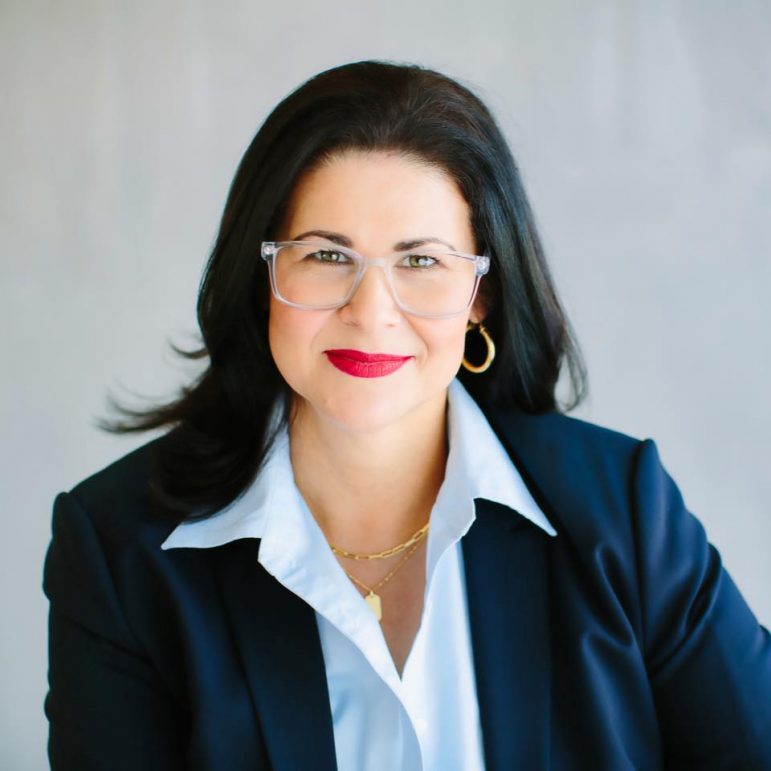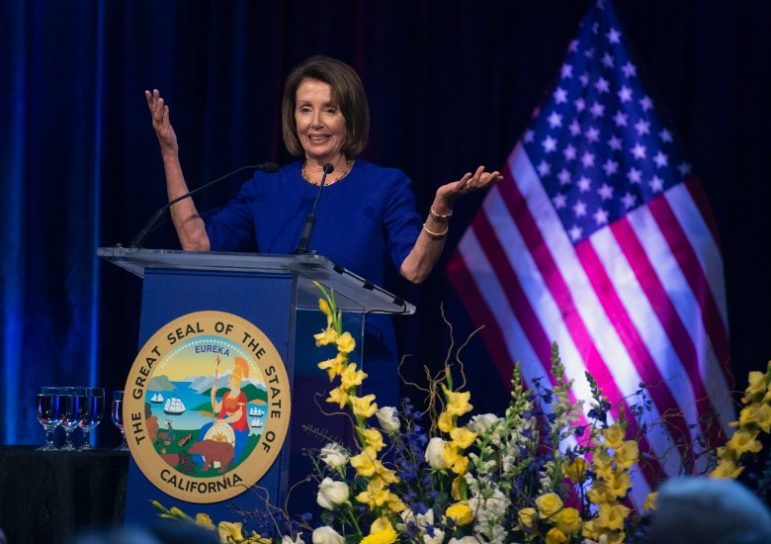In August, Christopher Rodriguez phoned into an online meeting of the California Citizens Redistricting Commission, the 14 volunteers who will draw new congressional and legislative maps that will be used for the next decade.
Rodriguez argued that no matter how the commission determines the state’s 52 congressional districts, Camp Pendleton, the sprawling Marine Corps base in north San Diego County, should be grouped together with the nearby cities of Fallbrook and Oceanside to keep “our military population together.”
If necessary, he argued, the commission should jettison cities farther down the coast, including Del Mar and Encinitas, which are “just completely foreign to us here in North County. They don’t come up here, we don’t go down there.”
Rodriguez introduced himself as “small business owner,” a “Marine Corp combat veteran” and “a father of seven.”
He neglected to mention that he’s also an Oceanside city council member — and a Republican running for Congress in 2022 whose prospects could be buoyed by a district that is anchored around the Marine base and his hometown and that excludes the Democratic areas to the south. The current 49th District, represented by Democrat Mike Levin, is 36% Democratic and 33% Republican by voter registration, but the San Diego County portion is about 38% Democratic.
Rodriguez said that his motivation was to advocate for the shared interests of the military communities, and that he was “absolutely” not factoring in his campaign prospects. “Running for office, and being a public servant as a city council member, is completely irrelevant,” he said.
A tight timeline
Since March, the commission has been hearing public testimony on which “communities of interest” to unite in legislative or congressional districts — and which to partition into political irrelevance. It requires arbitrating the competing demands of myriad ethnic, economic and political interests across the nation’s most diverse state.
The full commission meets today and Wednesday in Sacramento. It has until Dec. 27 to submit the final congressional and legislative maps to the secretary of state, the state Supreme Court ruled on Sept. 22. The panel had asked for an extension until Jan. 14, due to the delays in getting the required data from the U.S. Census. But the court-ordered schedule keeps the June 2022 primary on track, as does a scheduling bill signed Monday by Gov. Gavin Newsom.
The stakes are especially high in the northern San Joaquin Valley, the northern Los Angeles suburbs and Orange and north San Diego counties — the sites of California’s most hotly contested congressional races.
Though the commission is prohibited from considering the electoral interests of elected officials, candidates or political parties, there’s nothing that bars any of those players from trying to influence the decisions, nor any laws or rules requiring public commenters to list potential conflicts of interest.
But not disclosing a personal stake may cross an ethical line, said Jessica Levinson, a former member of the Los Angeles Ethics Commission and now a Loyola Law School professor.
“It’s good to hear from the parties about how the lines would benefit and harm them, but we kind of want to know who is speaking to us,” she said. “Knowing who the messenger is allows us to evaluate the message.”

Sara Sadhwani, the commission’s chairperson, said while more disclosure could be helpful, rules set by voters in the ballot measure that created the panel don’t require speakers to detail any partisan affiliations.
“We very much take our commitment to the process seriously, to ensure whoever wants to call in can,” she told CalMatters. “And we recognize that some of those might be candidates or people representing those candidates, even if they don’t acknowledge their connection. At the end of the day, the key piece for us is ensuring all Californians have a chance to weigh in.”
Sadhwani said the commission does receive input that appears coordinated — all basically repeating the same point — but said she and other commissioners don’t give those arguments any more weight than ones from a lone caller.
“We’re keeping our eyes open for some of those smaller voices that might otherwise get drowned out by these louder coordinated efforts,” she said.
Hiding true identities?

There have already been numerous examples of citizens failing to mention their partisan affiliations while making recommendations to the redistricting commission couched in nonpartisan language.
On Sept. 18, Ada Briceño, who called herself a “labor organizer” from Stanton, urged the commission to put the “very different communities” of north and south coastal Orange County into different districts.
“North Orange County, where I live, is the home to immigrants from around the world,” she said. “South Orange County reflects more of the wealthy, large beachfront homes that most people see on TV.”
Only especially politically plugged-in listeners — or those with the spare time to play detective — would know that Briceño is chairperson of the Orange County Democratic Party.
Asked why she didn’t disclose that, Briceño said her party role isn’t relevant. What is relevant, she said, is her 25 years as a leader with UNITE HERE 11 and as an organizer in Anaheim’s redistricting in 2015 and 2016, as the city transitioned from at-large to district elections.
“I feel like those are hats that I hold that are really ingrained and very cemented,” she said. “I just felt that it was critical that if I have a little bit of time to speak, I feel that it is crucial to highlight those issues.”
Also in the Sept. 18 hearing, two callers who only gave their first names took the opposite position from Briceño.
“The environmental issues facing the beaches of Orange County are unique enough to Orange County to warrant being brought under the control of a single congressional district,” said Austin, who described herself as a Dana Point mother of two with a background in geomorphology.
Unified representation of the coast would be “helpful as we consider climate change and rising sea levels,” added David, a resident of Leisure World Seal Beach.
Both the phone number fragment and the biographical description listed “Austin” match those of Austin Eisner, whose husband Alexander Eisner is a law partner of Shawn Steel, the former chairperson of the California Republican Party. He is married to U.S. Rep. Michelle Steel, who narrowly ousted Democratic incumbent Harley Rouda in November 2020 to represent coastal Orange County. Rouda is running again in 2022, trying to retake his seat in the 48th District, which is currently 33% Democratic and 38% Republican by registration.
Eisner did not respond to requests for comment.
The information provided by “David” suggests that he is David Harlow, chairperson of the Leisure World Republican Club.
Harlow confirmed to CalMatters that he had called in, but said it was not on behalf of the Republican Club. “Leisure World is kind of a closed community and everything that we do is how it would affect our community,’” he said.
He said that in hindsight, “maybe I should have said something” about his Republican affiliation. “But I don’t think I’m that important for it to mean anything,” he added.
Taking partisanship out
In 2008, California voters passed Proposition 11, handing the once-in-a-decade task of drawing 40 state Senate and 80 Assembly districts to the independent commission. Two years later, voters added the state’s 53 congressional districts to the commission’s duties.
Its task is more difficult this year because for the first time ever, California lost a U.S. House seat after the 2020 census. Its work may also be more consequential: Democrats hold a slim 220-212 majority in the U.S. House, while Republican-leaning states are gaining seats after the census.
And with Republicans expected to draw districts to their advantage in states they control, in the 2022 election, it’s crucial for Democrats to hold on to all 42 of their congressional seats in California, and maybe flip four GOP-held seats they are targeting, to have much hope of keeping control of the House and Nancy Pelosi of San Francisco as speaker.

The California redistricting commission’s members are pulled from applicants winnowed by the state auditor. Current and former elected officials and their staffers, lobbyists, big donors or family members are disqualified. The first eight are randomly selected, and they pick the final six. The panel is split with five Democrats, five Republicans and four members with no party affiliation.
The commission was designed to strip elected officials of the power to draw their own districts, a process full of backroom deals and shrouded in partisanship and secrecy. A growing number of states have adopted this more transparent, more independent process to prevent gerrymandering, though some new commissions have already split into partisan camps.
As early as the California citizen commission’s first redistricting following the 2010 census, it became clear how difficult it is to completely remove politics from the process. As detailed by ProPublica, California Democrats organized a statewide campaign, disguised as grassroots activism, by drafting a small army of advocates, elected leaders and innocuously-named nonprofits to lobby for districts to favor the party.
In response, the commission issued a 2016 report that acknowledged the lobbying, but said it carefully analyzed and evaluated all contributions, and “maintained its absolute independence as citizen representatives for all of California.”
The report said the commission debated having some kind of eligibility criteria, but that proved “largely unnecessary.” It did, however, urge future commissions to discuss potential manipulation of public input.
“This suggestion is not meant to discourage commentary or the mobilization of speakers but simply to point out that it is possible to ‘stack’ testimony or mislead the Commission,” the report says.
Current commission chairperson Sadhwani, a Los Angeles County Democrat who is an assistant professor of politics at Pomona College, said some of the safeguards in the process include that all conversations about redistricting must be open to the public, and that all comments are available in a public database. She also said the commission will post each proposal weekly so the public can see the maps.
Despite the potential pitfalls, public participation is a key selling point for the commission.
“It’s a thousand times better than a dude like me going in to meet with the state’s top elected leaders smoking cigars and drawing lines,” said Paul Mitchell, vice president of Political Data Inc., which provides voter tracking services to both Democratic and Republican campaigns.
“The most important thing is for the commission to have a clear set of standards and values,” he added. “If you have good footing as to what you want to achieve in the redistricting process and what kind of values you have, it’s hard for someone to trick you into drawing bad maps.”
